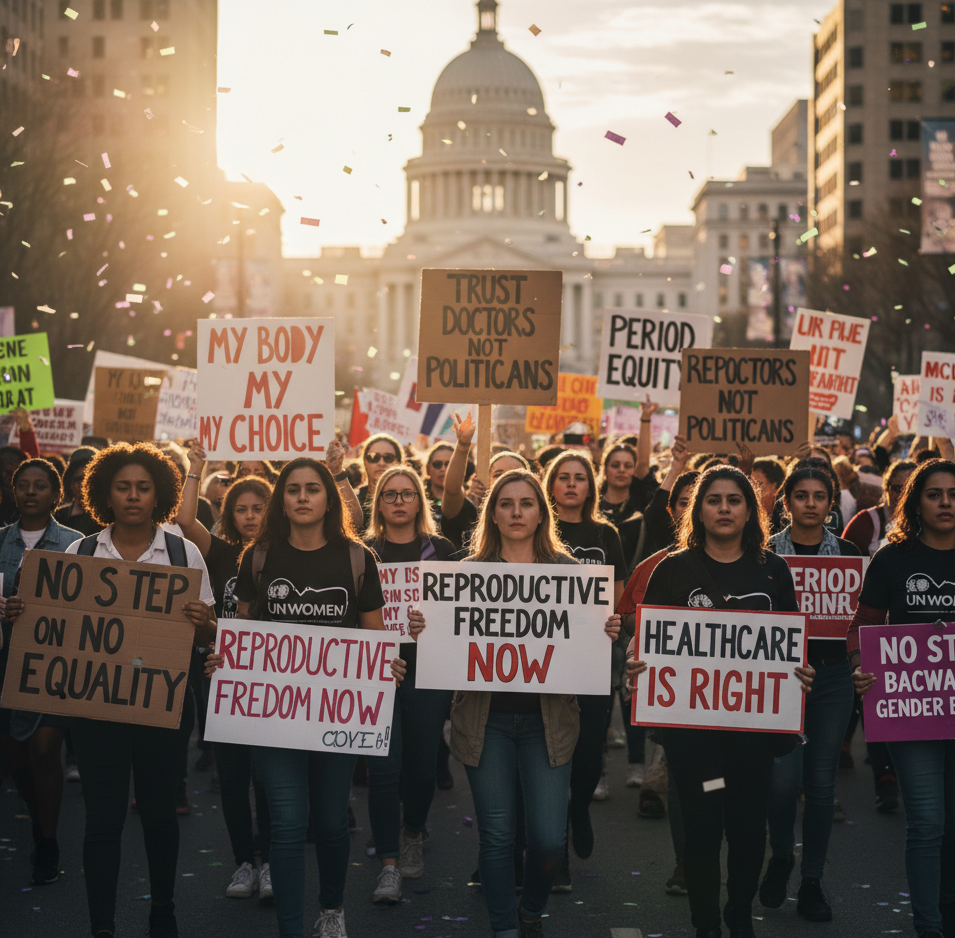Hey everyone,
Let’s talk about something deeply personal, something that impacts millions of lives every single day: reproductive rights and health. If you’ve been following the news, or even just scrolling through your social feeds, you know this isn’t just a “women’s issue” – it’s a human issue, a public health issue, and frankly, a cornerstone of a just society.
Especially after the 2024 elections, we’re seeing a powerful surge. It’s a backlash, yes, but more importantly, it’s a rising tide of awareness. People are waking up to how much access to vital care is being restricted, and it’s sparking conversations that are long overdue.
The Power of Sharing: Our Stories, Our Truths
One of the most incredible things happening right now is the sheer bravery of individuals sharing their stories. We’re talking about women, and those who support them, opening up about their experiences with abortion bans, the terrifying uncertainty of not knowing if they can access emergency care, and the emotional toll of having deeply personal medical decisions scrutinized by politicians.
These aren’t just anecdotes; they are powerful, lived realities. They put faces and names to the statistics and show us, in no uncertain terms, what’s at stake. These stories are fueling the advocacy for bodily autonomy – the fundamental right to make decisions about your own body and your own future.
Imagine having a medical emergency, a miscarriage, or a life-threatening pregnancy complication, and finding that the care you need is delayed or denied because of a legislative ban. This isn’t theoretical; it’s happening. And the more these stories are shared, the harder it is for anyone to ignore.
Beyond Abortion: The Bigger Picture of Reproductive Health
While abortion access often dominates the headlines, reproductive rights and health encompass so much more. We’re talking about a full spectrum of care that includes:
- Menstrual Health: Access to affordable period products, education about menstrual cycles, and treatment for conditions like endometriosis or PCOS. This isn’t a luxury; it’s a basic health need.
- Contraception: The ability to plan your family, space your pregnancies, and prevent unintended pregnancies. This is crucial for economic stability, educational attainment, and overall well-being.
- Prenatal Care: Comprehensive support and medical care throughout pregnancy to ensure the health of both parent and baby. This includes everything from regular check-ups to nutritional advice and mental health support.
- Postnatal Care: Support after childbirth, addressing physical recovery, mental health challenges (like postpartum depression), and infant care.
When we talk about restrictions, we’re not just talking about one aspect of care. These limitations often have a domino effect, impacting the entire landscape of reproductive health.
Doctors, Not Politicians: A Crucial Distinction
Here’s a piece of advice that should be obvious, but sadly, needs to be repeated: For medical advice, especially during pregnancy, consult your doctor, not a politician.
It sounds simple, right? Your doctor has years of medical training, understands your individual health history, and is bound by an oath to provide the best possible care. Politicians, while they may have good intentions (or not), are generally not medical experts. Their decisions are often shaped by ideology, not evidence-based medicine.
This isn’t to say politicians don’t have a role in healthcare policy, but that role should be to support access to care, protect patient-doctor relationships, and ensure that medical decisions remain between individuals and their healthcare providers. When legislative bodies interfere with medical standards or restrict evidence-based care, everyone suffers.
The Stalled March Towards Gender Equality
Adding another layer of urgency to this conversation are reports from organizations like UN Women. They’re highlighting a sobering reality: progress on global gender equality goals has stalled, and in some areas, it’s even reversing. The erosion of reproductive rights is a massive factor in this setback.
Gender equality isn’t just about equal pay or political representation; it’s fundamentally about bodily autonomy and the ability to control one’s own life path. When basic reproductive healthcare is threatened, it impacts women’s education, their economic participation, their physical and mental health, and their overall ability to thrive.
The right to make decisions about one’s body is inextricably linked to every other aspect of equality. Without it, true equality remains an elusive dream.
What Can We Do?
It’s easy to feel overwhelmed by the scale of these issues, but there’s immense power in collective action and informed discussion.
- Educate Yourself: Understand the laws and policies in your area and beyond.
- Share Your Story (If You Can): Your experience is valid and powerful.
- Support Organizations: Find and support groups working on the front lines to protect and expand reproductive rights.
- Vote: Elect representatives who champion bodily autonomy and evidence-based healthcare policies.
- Talk About It: Break the silence. Have open, empathetic conversations with friends, family, and your community.
This isn’t a moment to be silent. This is a moment to stand up, speak out, and ensure that every individual has the fundamental right to make decisions about their own body and their own future.
What are your thoughts on this? Share your perspective in the comments below. Let’s keep this crucial conversation going.

Leave a Reply